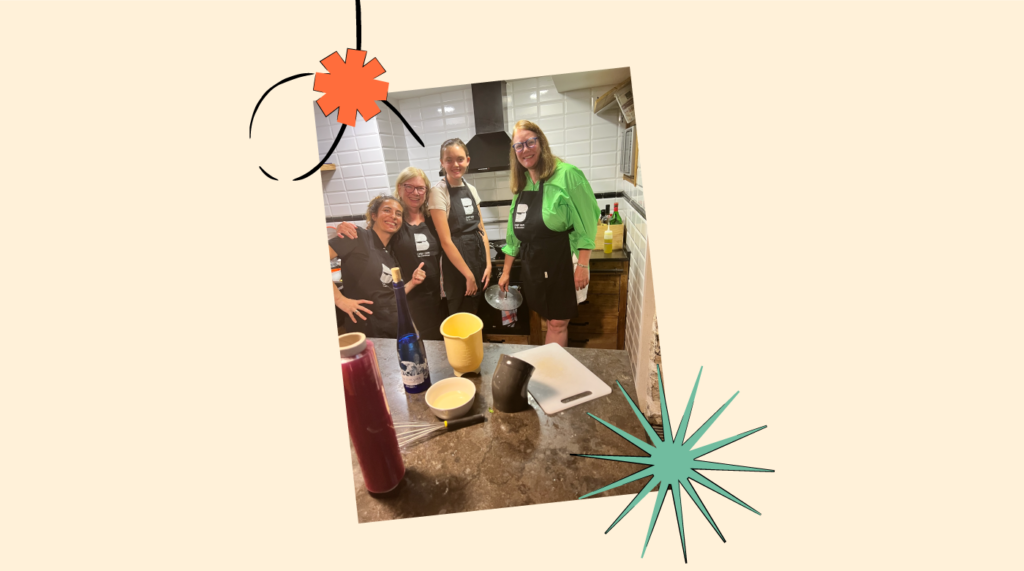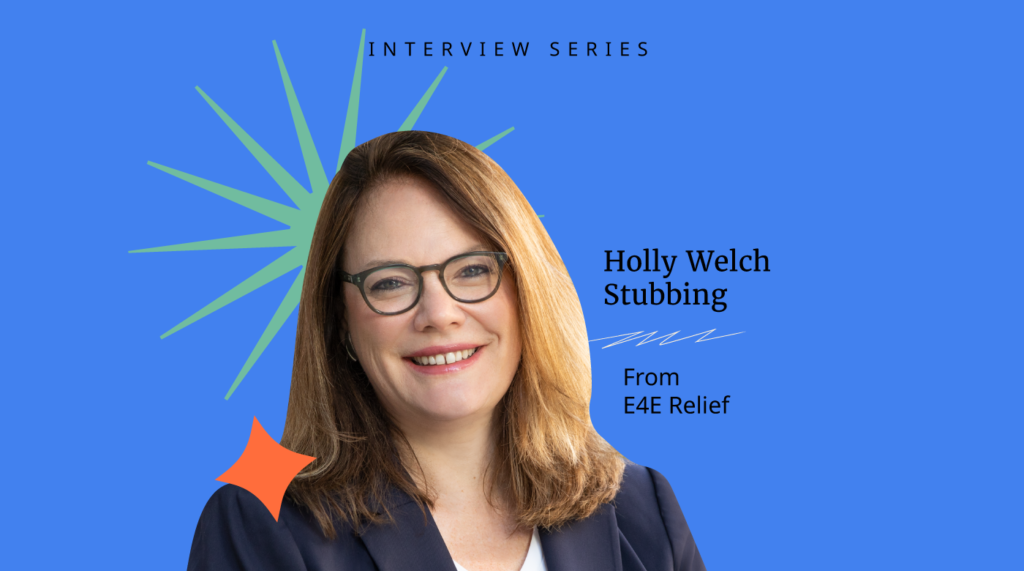We’re passionate about the world of work, and how we can make it better. To help satisfy our curiosity, we’ve launched an interview series where we pick the brains of experienced leaders, business owners, managers, and individual contributors to get their thoughts on how we can collectively build better workplaces.
We’d love to get to know you a bit better, tell us a bit about your backstory.
As President & CEO of E4E Relief, I lead a national social enterprise that provides disaster and hardship grants to individuals worldwide. We currently do that primarily in the form of providing employee relief programs for companies. Prior to my current position, I worked for Foundation For The Carolinas for over 20 years in fundraising/advancement, investment portfolio management and legal affairs.
I earned my B.A. in Speech Communications and International Studies from Wake Forest University, J.D from the University of Dayton School of Law, and Global Executive MBA from Georgetown University’s McDonough School of Business. I currently live in Charlotte, N.C.
When I’m not reading and writing about philanthropy, disaster relief or impact investing, I love to travel and explore the outdoors with my family. Our most recent voyage took us to Northern Spain. The scenery, the surfing, and the entire experience were simply unforgettable!
If we were to ask a friend to describe your personality to us, what would they say?
My friends would probably describe me as driven and compassionate, with some fun along the way. So maybe “driven by compassion” is the better way to say it! My friends would also describe me as a “foodie” because I love cooking, especially preparing culturally inspired meals with my family and friends.

Thinking back to your career journey, what’s an interesting story that stands out?
What stands out to me is that
I have learned just as much (or more) from the difficult situations—the ones without a win—than those with a win.
The times where a difficult customer, HR situation or governance matter made me think and work harder helped me improve my approach. I have a few stories along the journey that shed light on how to do things and how not to do things. Even though they were hard, I am grateful for those moments.
What’s the most impactful lesson you've learned over your career thus far?
I’ll never forget my visit to Napa, California to meet the wildfire victims from our Napa Relief Program. We listened to the raw details of the catastrophic losses, and then heard the survivorship stories of people rebuilding their lives. In my line of work the impactful lesson I get to learn over and over is the power of what a group of people, singularly focused, can do when they work together. The power of a built community, and the compassionate nature of humankind in times of need is really what makes the world go around.
Thanks for giving us some insight into who you are! Let’s jump into things. When you hear the phrase “build a better world of work”, what comes to mind?
When I hear “build a better world of work” I think about the past two years and what work has meant to people living during a global pandemic—there have been such highs and lows for employees and employers.
It’s been a very challenging time to both do your job and to manage a business. We see businesses focused intently on building a better world of work, primarily to do well by their employees and stakeholders. We see a lot of leaders talking about the S in ESG. When it comes to ESG—environmental, social and governance, we’ve seen companies address the E by minimizing their carbon footprint.
More recently, companies are starting to focus on the S and make a better world of work for employees, customers, community members, or other stakeholders. We see this at E4E Relief all the time when companies come to us to set up relief funds, but this can be anything from offering flexible work hours to implementing a policy that offers paid time off for volunteer work. As companies find ways to address the S and make improvements for their people, they are leading us down a path towards a better world of work.
For you, what’s the main blocker you see as standing in the way of building a better world of work?
While we can agree that we want to build a better world of work, the main roadblock I see is that we all bring a slightly different meaning to the word “better.” We know we want to build a better world of work for employees which means focusing on employee well-being, but that can take so many forms. Figuring out how to evaluate programs and policies that build a better world of work for people can also be problematic, because well-being is tough to quantify.
One tip for coming to an agreement on what defines a better world of work is implementing what I like to call “zero based well-being benefits.” This is the practice of going back and looking at all expenses associated with each well-being program, evaluating them, and adding back those that provide the best environment and the desired impact. Then, as new well-being programs are added, put processes in place to measure the “better” right from the start.
What’s one thing within our control that we can practically do to build a better world of work today? And, how do you recommend going about it?
You’ll hear us say at E4E Relief that “doing good is good business” and there are so many ways to do good and build a better world of work.

The specifics can mean different things in different work environments and different industries, but I think the key is to give employees a voice, and then listen. This can be as simple as a casual conversation, or as formal as a company-wide survey. The synergy of doing good with a focus on employee well-being starts with a product or policy, and impacts everything from employee loyalty rates to company productivity.
Can you share one thing you’ve experienced, seen, or read about that is leading us towards a better world of work?
I see employers really thinking about their employees, contractors, and other stakeholders as the key drivers of their success, and looking to invest in their training, development, and support as mechanisms to both do the right thing and to improve their results.
This blend of “conscious capitalism” as it has become known is likely to lead to a better world of work and a better society at large.
Shareholder primacy is becoming less prominent and, I believe, is being replaced by a broader focus on stakeholder primacy, where shareholders share equal weight with other key supporters, like employees.
I’m curious, thinking about building a better world of work, is there a company and/or leader who stands out to you as someone we should follow? If so, what are they up to?
I enjoy following @CarsonTate’s blog. She consults with some of the largest companies and is a well-thought-of emerging national leader in the space. Her advice is practical, achievable, and just makes sense right now.
How can our readers follow your work?
Readers can go to the E4E Relief website which is kept up to date with my articles and speaking engagements. You can also follow me and E4E Relief on LinkedIn:
Thank you for adding your voice to People Managing People’s interview series on How to Build a Better World of Work!
Add Your Voice To The Conversation
Join our interview series and share your ideas for how we can build a better world of work.

